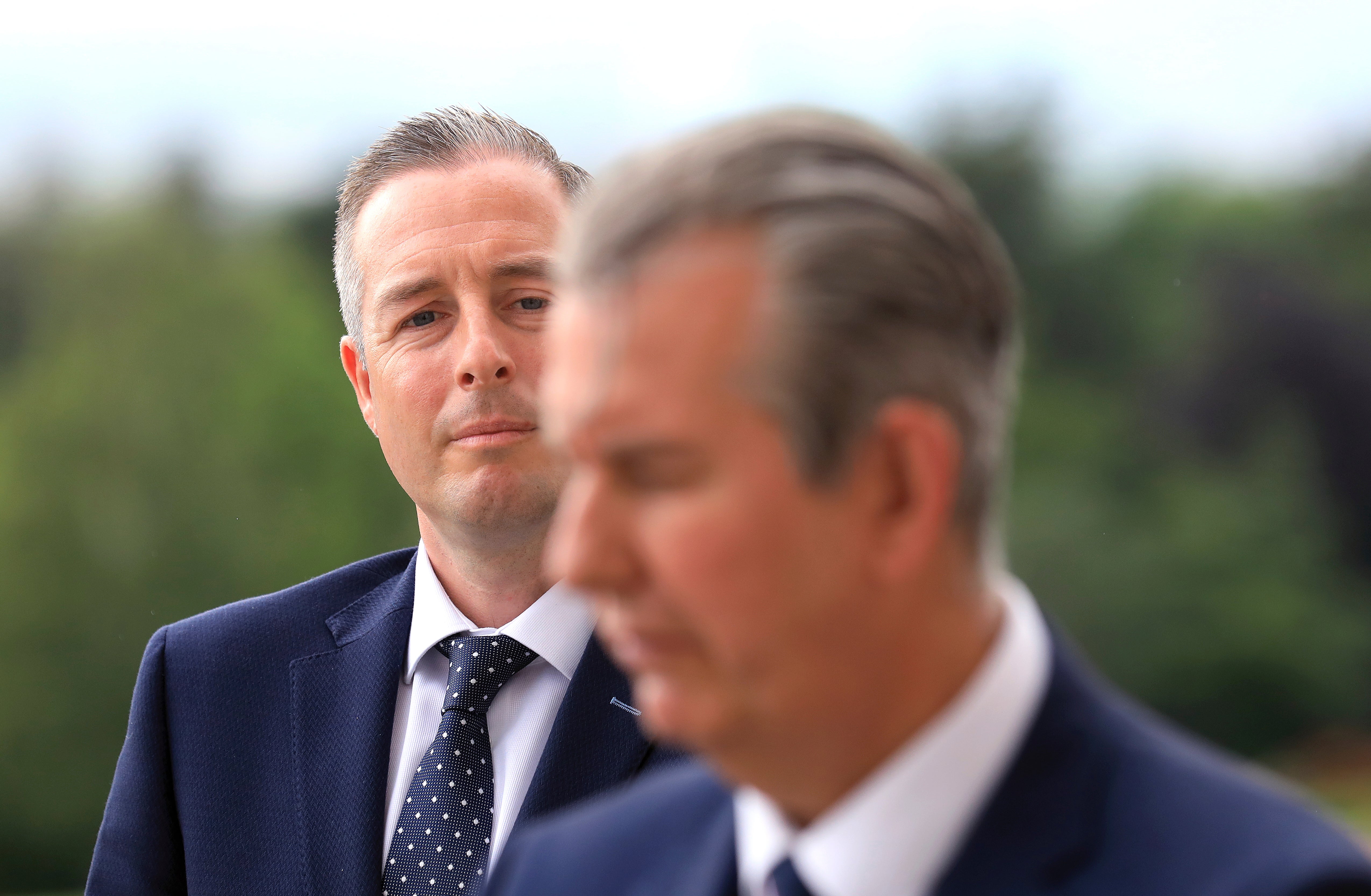N. Ireland parties ease crisis that threatened power-sharing
Northern Ireland’s biggest political parties appear set to agree on a new government after ending a standoff that threatened to scuttle the Protestant-Catholic power-sharing administration

Northern Ireland’s biggest political parties appear set to agree on a new government Thursday after ending a standoff that threatened to scuttle the Protestant-Catholic power-sharing administration.
The pro-British Democratic Unionist Party has picked Northern Ireland Assembly member Paul Givan as its choice of first minister. But the Irish nationalist party Sinn Fein had threatened not to fill the post of deputy because of a feud about protections for the Irish language.
That would have mothballed the administration — under the power-sharing arrangements set up as part of Northern Ireland’s peace accord, a government can’t be formed unless both roles are filled.
The language issue cuts to the heart of tensions between Northern Ireland’s mostly Catholic nationalists, who see themselves as Irish, and Protestants who largely identify as British.
The Northern Ireland Assembly, in which the DUP is the largest party, has failed to pass a law ensuring protections for the Irish and Ulster Scots languages, despite the power-sharing parties agreeing last year to do so.
But early Thursday the British government said it would step in and pass the legislation in the U.K. Parliament if the Belfast assembly did not do it by September.
Sinn Fein welcomed the move, with party leader Mary Lou McDonald saying it had broken the “logjam of DUP obstructionism.” The party said it would nominate Michelle O’Neill as deputy first minister.
DUP leader Edwin Poots accused Sinn Fein of creating instability, but confirmed that “Paul Givan will be nominated for the position of first minister at the earliest opportunity.”
However, he faced anger from many of his party's senior politicians, who said he shouldn't proceed before consulting with them first.
The new government follows the resignation of Arlene Foster as first minister and DUP leader. She quit in April, under pressure from her party over her handling of Brexit and her perceived softening on social issues such as abortion and LGBT rights.
The party elected Poots, a social and religious conservative, to replace Foster as leader. He broke with tradition by deciding not to serve as first minister.
The DUP, which is rooted in the fundamentalist Free Presbyterian Church, opposed Northern Ireland’s 1998 peace accord. It later became reconciled to it and has shared power with the Irish Republican Army-linked party Sinn Fein.
The British government retains an array of powers affecting Northern Ireland, but the Belfast assembly can make laws in areas including agriculture, education and health.
If a new executive is formed, it is due to meet later Thursday to discuss easing coronavirus restrictions in Northern Ireland.